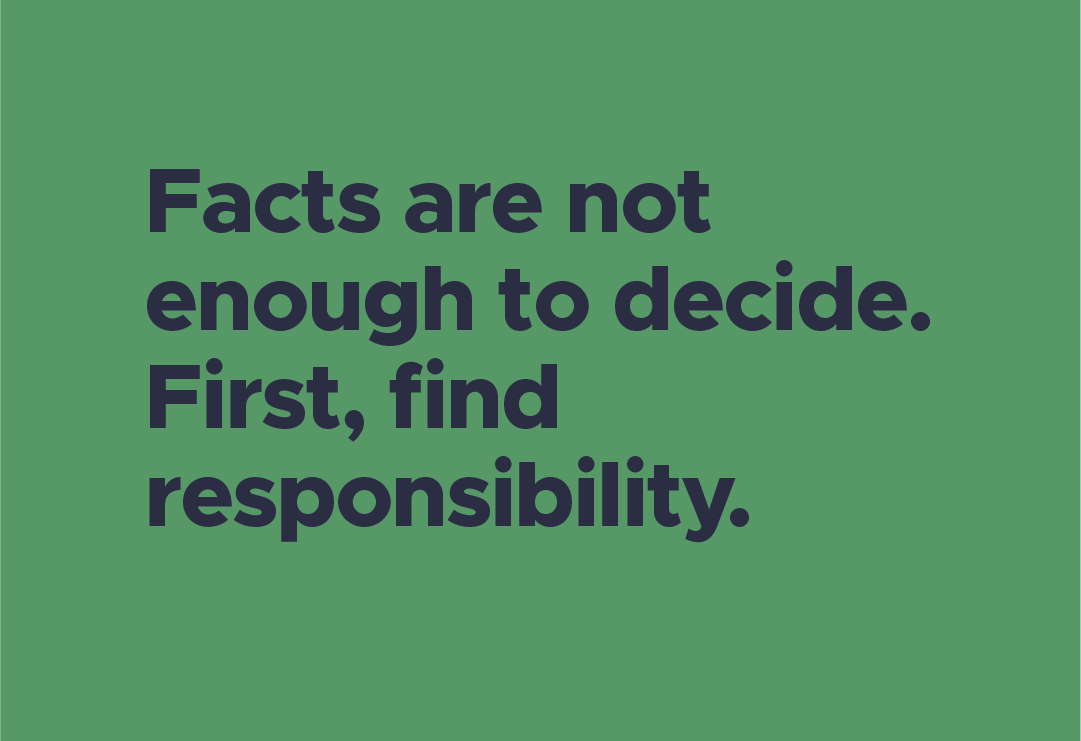Manipulation Tactics – Break Free
The hidden logic of fear: If [Condition], then [Consequence], so [React].
Fear is a powerful force. It sharpens our instincts, makes us pay attention, and prepares us to react. In moments of real danger, that’s useful. But when fear is the result of manipulation — whether by others or by our own minds — it distorts how we see reality and limits our ability to act.
Fear can protect us — or it can be used to control us.
I find it helpful to divide fear into two main types:
Instinctual fear keeps us safe from immediate danger.
Psychological fear is shaped by past experiences, reacting to things that may no longer be a real threat.
When life feels uncertain, psychological fear often takes over. We want something so badly, we stop thinking clearly.
That’s when fear tactics thrive — in media, politics, marketing… even in our relationships and leadership roles.
I believe fear tactics often follow a simple formula:
If [Condition], then [Consequence], so [Prepare].
If we don't increase sales, we will have to reduce personnel — so make your best effort as a team.
If you don't improve, you will keep suffering — so do something!
If we keep this corrupt party in power, our way of life will be lost forever — so go vote.
The formula creates urgency and pressure, but it bypasses dialogue and nuance. It pushes action through anxiety, not clarity.
One striking example is the Cambridge Analytica scandal, where millions of people’s Facebook data was harvested to create highly personalized political ads. These ads didn’t simply promote policies — they triggered fear, division, and identity-based threats. By feeding individuals the exact fears they were most susceptible to, political campaigns during the 2016 U.S. election and Brexit referendum were able to manipulate behavior at scale. It was no longer just mass messaging, it was precision-targeted psychological warfare, all based on emotion.
But what if you called the bluff?
What if you paused, noticed the tactic, and chose a different response?
That’s when things start to shift.
Can you find out how the following articles use Fear Tactics to reveal the Fear Tactics of others?
Cambridge Analytica - The Guardian.
Comparing both types of reporting is revealing.
The NPR article presents the Cambridge Analytica case with a calm, explanatory tone. It avoids emotionally charged language and refrains from making moral judgments. Instead, it offers context, quotes multiple sources, and uses qualifiers like “allegedly” or “according to.” This style invites the reader to understand, not to panic.
The Guardian article, by contrast, leans into urgency. It uses emotive phrasing like “target their inner demons” and frames Cambridge Analytica as a weapon in a cultural war. The narrative is compelling and vivid but also uses metaphors of battle, secrecy, and violation. Even though the goal is to expose manipulation, the language mirrors the very fear-based formula it critiques:
If data is abused on this scale, then democracy is under threat — so we must act urgently.
Neither approach is “wrong.” But they show two distinct styles of communication:
One encourages reflection.
The other provokes alarm.
Both reveal something not just about the event, but about the way fear is used to shape attention and behavior — even in journalism.
So, how do we stay aware?
By not only looking at the content of the message but also at its emotional structure.
If we don’t learn to see the formula, we may keep falling for it — even when it comes from those trying to protect us.
I hope this article opens a new perspective.
With love,
Jose.
I’m shy about this first fiction article, with voice narration, but I’m sharing it anyway :)
The Oracle and the End of Me
This story came to me some days ago. I couldn’t resist it, I had to write it down.








Thank you for posting a link to this post in your reply to my comment earlier.
Yes. This is a clear distinction. I particularly like the “ if xyx then abc so ACT”
My present situation of my house buyer pulling out so close to completion day has put me into fear / lack mode .. if I can’t find / attract a buyer (by end of the month .. more pressure) I might lose my ongoing purchase/ the flat in my “dream” location that I’ve been looking forward to moving to for over ten years (which would cause me a lot of sadness)… and I will have to delay moving there / go through another sales process ( more discomfort) SO ..
I’ve been in total freeze mode and then madly thinking of everything I could do to be able to go ..
This distinction between instinctual and psychological fear is so insightful, it really helps to understand how fear works both as a natural survival response and as something shaped by our mind and experiences. Reading this made me reflect on my own psychological fear recently. I found myself afraid to speak up or move forward, held back by that internal barrier. But this week, I made a conscious decision to step up for myself, to speak out no matter the risks, because I didn’t want to keep suffering in silence or letting fear control my life.
Seeing fear through these two lenses gives me a new perspective on how much of it is rooted in instinct and how much is shaped by our thoughts and emotions. It’s empowering to realize that while instinctual fear can protect us, working through psychological fear is key to reclaiming our voice and agency. Thank you for this thoughtful breakdown, it’s helped me process my own journey with fear on a deeper level.